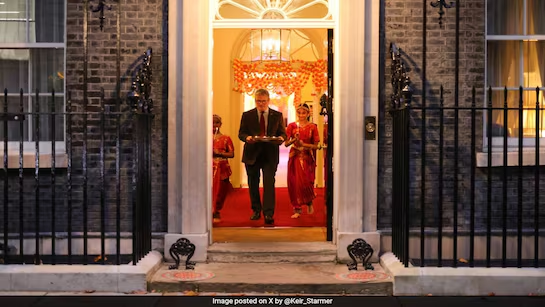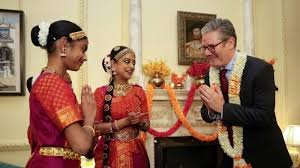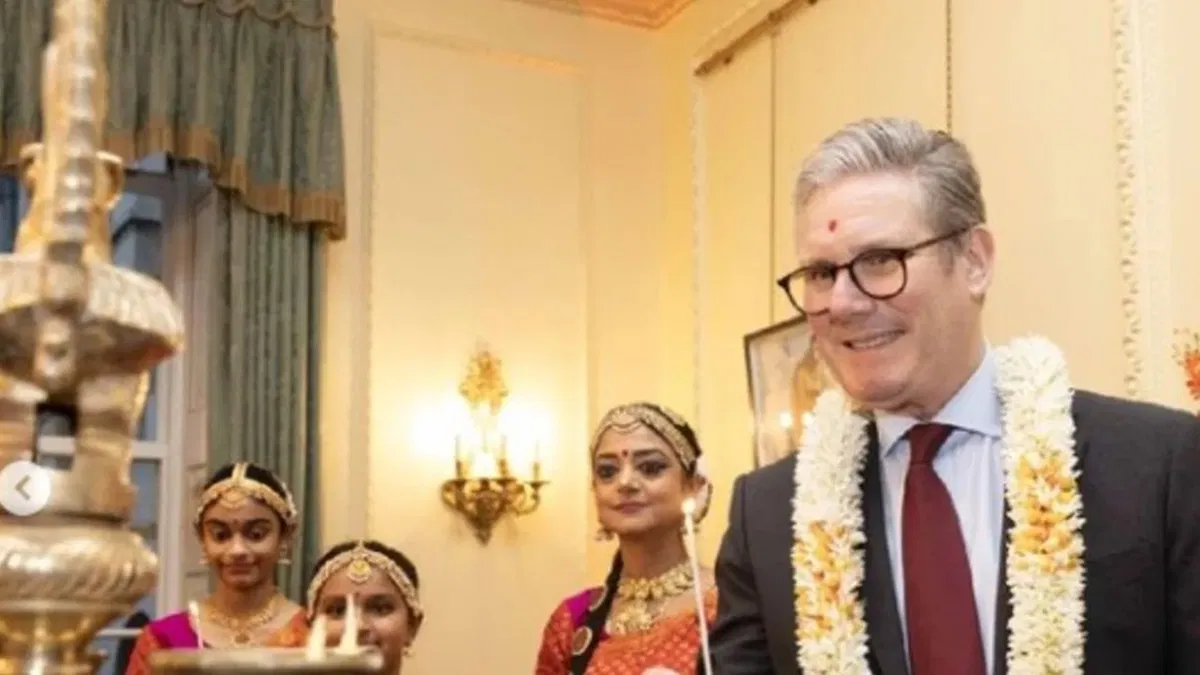Key Highlights:
The Diwali reception recently organized by UK Prime Minister Keir Starmer at 10 Downing Street sparked a heated debate among the British Hindu community. While some laymen criticize the cultural insensitivity mainly because the event menu has non-vegetarian dishes along with alcoholic beverages, others welcomed the celebration in a diversified society as an instance of multicultural celebrations.
The Event and Its Intentions
On 29 October 2024, Prime Minister Keir Starmer’s official residence was hosting a reception during which the Prime Minister indulged to celebrate Diwali along with representatives from all communities. The prime aim was to seek ways of cultural diversity in the UK and bring inclusivity.
Community Reactions: A Call for Cultural Sensitivity
Despite the seemingly all-inclusive gestures, there have been some unwarranted criticisms by sections of the British Hindu community. The Insight UK organization was disappointed at the menu options, saying that the availability of non-vegetarian food and alcohol showed an “appalling lack of understanding” of the religious significance of Diwali. “Diwali is not just a fun occasion but a rather serious spiritual day,” they added, when it used to be one time for traditional vegetarian fare and abstinence from alcohol, at least.

Insight UK questioned whether Hindu community organizations and religious leaders were consulted over the planning of the event in a social media post. They urged greater consideration in future events and respect for religious traditions that are associated with Diwali.
Government’s Response and Perspective
The Downing Street refused to comment on the reception’s menu options, but the government sources have suggested that the reception was open and included people representing cross-community and also marked some Sikh celebrations such as Bandi Chhor Divas. That could have a bearing on how the menu options have been selected to accommodate a diverse audience.

Cultural sensitivity to multicultural celebrations
The noise highlights the importance of cultural understanding and sensitivity while organizing celebrations around religious festivals. Millions around the world celebrate Diwali, which is a festival of immense religious and cultural significance for Hindus, Jains, Sikhs, and Buddhists. Traditional practices often incorporate formal dietary abstentions such as vegetarianism and alcohol restrictions to demonstrate reverence for the spiritual occasion being celebrated.
Public activities in diverse societies like the UK, where most communities live together, must consider appreciating such cultural differences. By addressing community leaders and cultural organizations during planning, it is relatively easy to have such events conducted in an all-inclusive, appreciative manner of all cultures.
Balancing Inclusivity and Cultural Respect
Although the rationale for a Diwali reception at the Prime Minister’s residence is supposed to be the celebration of cultural diversity, their selections for menu choices highlighted the problems in balancing accommodation with respect for cultures. For some people attending the reception, the service of non-vegetarian food and alcohol might have been regarded as accommodative by the larger audience. For others, it demonstrated a lack of consideration for the traditional observance of the festival.
This is just a typical instance of the very thin line that has to be tread while organizing multicultural celebrations. The organizers will have to balance between accommodating the tastes and the particular cultural and religious nuances that come along with the event.
Future Recommendation and Takeaway
The hubbub surrounding the Diwali reception at 10 Downing Street presents an opportunity as a learning experience for future events of this kind:
- Engagement of Local Leaders: There is a possibility that engaging the local leaders in the planning will give broader insight into the traditional practices which will help to avoid some cultural faux pas.
- Training the Public Events Organizers: Such culture competency training for those who are planning public events can give better understanding as well as respect for the divergent traditions.
- Offer Choice: When developing menus and other activities, offering a variety of choices that would satisfy different cultural practices fosters inclusion but not at the expense of specific practices.
- Communicate Purposes Clearly: Clear communication about an activity’s purpose and why some considerations were made to honor cultural practices helps foster trust and understanding among participants
Conclusion
A good example of the dilemma the multicultural society faces is how to go about celebrating the cultural festivals. On one hand, an event such as Prime Minister Keir Starmer’s Diwali reception was no doubt intended to honor diversity and inclusion. On the other hand, this execution has sparked the conversation regarding the importance of cultural sensitivity and respect for religious traditions. In order to benefit from such celebrations, more significant participation with community heads and proper planning shall help win such events in the right way, honoring and cherishing the rich tapestry of cultures that give life to the nation’s identity.
For Latest News Updates Click Here
